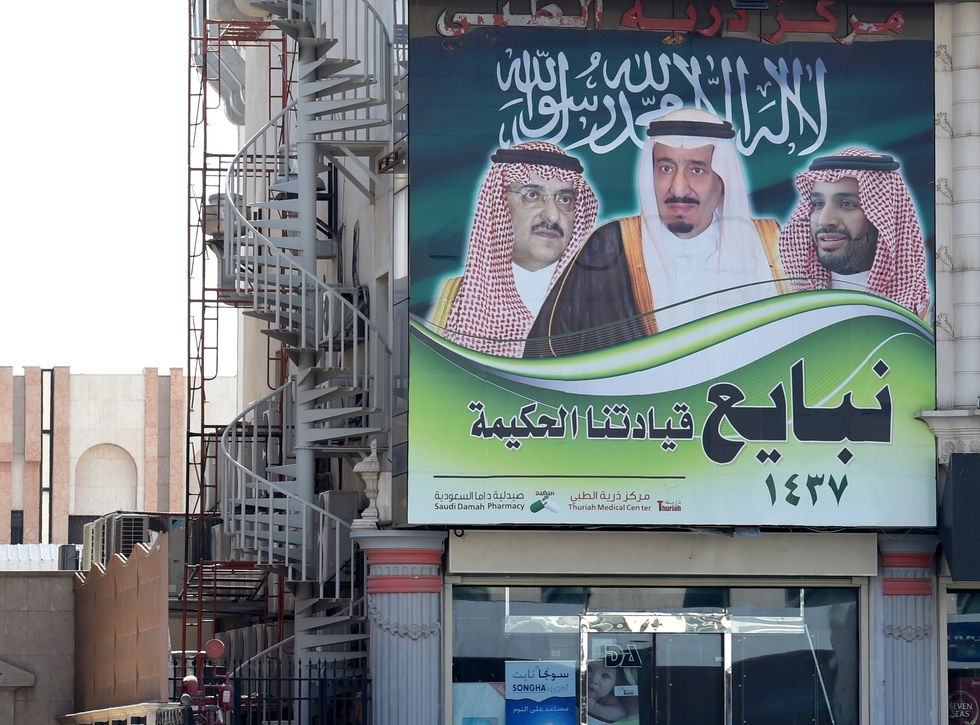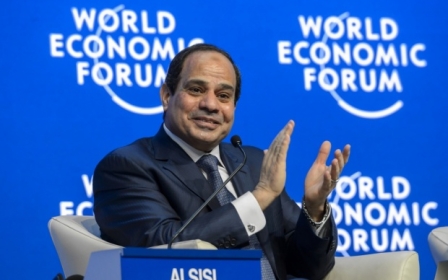Saudi Arabia 'weaker' than its peers, rating agency warns upon downgrade

Fitch Ratings agency lowered Saudi Arabia’s long-term credit rating on Tuesday from AA to AA- saying that the plunge in oil prices has had a “major negative implications” for the world’s biggest crude exporter.
The agency indicated the increased tension with regional rival Iran and greater uncertainty over economic policy, now overseen by Deputy Crown Prince Mohammed Bin Salman, were the key reasons behind its decision to lower the rating.
The announcement by Fitch Ratings comes in the wake of plans by the Kingdom to generate $100bn in non-oil revenue by 2020, signalling a move on the Saudi government’s part to further diversify its oil dependent economy.
In February, Standard and Poor also cut Riyadh's credit to A- by citing the impact of lower oil prices on Saudi finances.
Last month, Moody’s also put other Gulf oil producers on review for downgrades.
Oil prices have collapsed from above $100 in early 2014, and on Tuesday were trading at just over $40, having recovered slightly from lows of below $30 a barrel.
The fall led Riyadh to impose unprecedented cuts in its 2016 budget - which projects a deficit of $87bn - and to push economic diversification.
The government has said oil income made up 73 percent of revenue in 2015, compared with an average of 90 percent in the previous decade.
To cope with the fiscal gap, Saudi Arabia raised retail fuel prices by up to 80 percent in December and cut subsidies for electricity, water and other services.
It has also delayed some major projects under King Salman, who acceded to the throne last year.
Referring to such efforts, Fitch said: "The pace of fiscal consolidation has increased."
It said further reforms are to be presented under a "National Transformation Programme" to boost non-oil revenues and streamline spending.
'Weaker' than its peers
"Even if fully implemented, the measures will not prevent a substantial erosion of fiscal and external buffers during 2016 and 2017, although the buffers will still be sufficiently high to constitute an important rating strength," Fitch said.
Salman named his son Prince Mohammed as defence minister and head of the main Council of Economic and Development Affairs. Mohammed also chairs a body overseeing state oil company Saudi Aramco.
"Control over economic policy making has been concentrated in the hands of Prince Mohammed," Fitch said.
"This may have contributed to an acceleration of the economic policy making process, but has also reduced the predictability of decision-making."
The agency also noted that Saudi Arabia faces higher geopolitical risks relative to its AA- rated peers.
"Tensions have risen between Saudi Arabia and its long-standing regional rival Iran, and are expected to persist, although a direct confrontation is highly unlikely."
Fitch mentioned Saudi Arabia's military intervention in Yemen and its policy towards Syria, showing "a greater assertiveness".
For more than a year, Riyadh has led a largely Arab military coalition against Houthi rebels who still control much of the country.
Fitch said other Saudi indicators are also "weaker" compared with its peers. These include GDP per capita and World Bank measures of governance, which include "accountability" and "rule of law".
According to the International Monetary Fund (IMF), Saudi Arabia's economy grew by 3.4 percent last year.
On Tuesday, the IMF maintained its forecast of 1.2 percent growth for the kingdom this year and 1.9 percent in 2017.
Other analysts see 1.5 percent expansion in the Saudi economy this year.
Capital Economics on Tuesday said the non-oil economy "seems to be struggling" under the weight of the utility rate hikes imposed under austerity measures.
Saudi Arabia and other oil producers are to meet in Doha, Qatar, on Sunday to discuss a proposal to freeze crude output.
New MEE newsletter: Jerusalem Dispatch
Sign up to get the latest insights and analysis on Israel-Palestine, alongside Turkey Unpacked and other MEE newsletters
Middle East Eye delivers independent and unrivalled coverage and analysis of the Middle East, North Africa and beyond. To learn more about republishing this content and the associated fees, please fill out this form. More about MEE can be found here.




